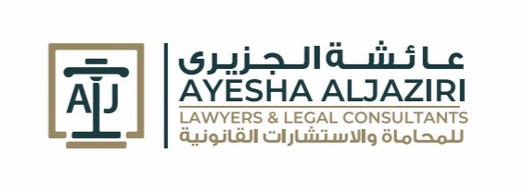As Dubai’s commercial landscape evolves, staying compliant is as critical as winning clients. At Ayesha Aljaziri Lawyers & Legal Consultants, we help businesses build strong legal foundations that support growth, investment, and operational efficiency. With full rights of audience before all UAE courts and a multilingual team of experienced lawyers in Dubai, we deliver trusted legal solutions that keep your company’s essential documents accurate, accessible, and audit-ready.
- Maintain core registration records (trade license, commercial registration) alongside governance instruments (MoA/AoA, shareholder agreements).
- Keep employment, tax, and financial records current to meet UAE compliance requirements and reduce legal risk.
- Implement ongoing reviews for sector-specific certificates (health and safety, data protection, ESR/UBO) to avoid penalties and protect business continuity.
Why These Documents Matter for Dubai Businesses
Dubai offers a dynamic, business-friendly environment; however, each stage of your company’s lifecycle—formation, funding, scaling, and exit—relies on precise documentation. The right documents provide legal legitimacy, clarify ownership and decision-making, and demonstrate compliance during inspections, tenders, and bank onboarding. They also accelerate dispute resolution because roles, rights, and risks are clearly recorded from the outset. Our law firm supports companies across corporate, commercial, employment, financial services, real estate, healthcare, technology, and other regulated sectors, ensuring your records stand up to regulatory scrutiny and court standards.
Business Registration Documents

Trade License. Every operating entity in Dubai must hold a valid trade (or professional/industrial) license issued by the competent licensing authority of the relevant jurisdiction (for mainland, the authority is currently Dubai’s Department of Economy and Tourism; for free zones, the relevant free zone authority). The license specifies your permitted activities, legal form, and registered name. Keep the original license and all renewals, amendments, and activity changes together with payment receipts. Renewal lead times vary; diarise expiry dates and align them with your lease and activity needs so operations are never interrupted.
Commercial Registration Certificate. Sometimes referred to as a commercial registry extract or certificate of incorporation (naming can differ by jurisdiction), this record evidences the company’s legal existence, registration number, and key particulars. Banks often require it to open corporate accounts and for ongoing KYC reviews. Store the initial certificate, any updated extracts, and certified copies used with third parties.
Lease/Ejari or Registered Office Evidence. Your registered address underpins licensing and bank onboarding. Maintain your current lease, Ejari (for applicable premises), and any addenda or NOCs from the landlord regarding signage or sub-leasing prohibitions.
Corporate Governance Documents
Quality governance documents articulate how the business is owned and run—information that investors, auditors, and courts rely on. Our corporate lawyers in Dubai draft and refine these records to reflect commercial realities while meeting UAE legal standards.
Memorandum & Articles of Association (MoA/AoA)
Your MoA and AoA form the company’s constitutional framework. They set out the company objects, capital, share classes, transfer restrictions, board powers, meeting procedures, quorum, and dividend rules. Keep signed originals, notarised and legalized versions (if applicable), and all subsequent amendments and shareholder resolutions. When you change activities, increase capital, or modify signatory authority, the governance suite must be updated to stay aligned with the public registry and banks.
Shareholder Agreements
Beyond the constitutional documents, a bespoke shareholder agreement clarifies control, funding obligations, transfer rights, deadlock mechanisms, drag/tag provisions, and exit routes. This contract protects minority interests, sets out dispute resolution pathways (court or arbitration), and prevents operational gridlock. For cross-border shareholders, it can also address governing law and enforcement. Our commercial lawyers in Dubai align these terms with local enforceability standards and your financing strategy.
Board & Shareholder Resolutions. Keep signed minutes and resolutions for appointments, banking mandates, related-party approvals, and major transactions. Lenders and investors will request them; courts and tribunals also rely on them to test authority and corporate intent.
Employment & Labour Documents
Clear employment documentation reduces disputes and ensures compliance with UAE Labour Law. Our labour & employment lawyers in Dubai support employers with policy drafting and investigations.
Employment Contracts
Issue written contracts that define role, probation, working hours, remuneration, benefits, leave entitlements, confidentiality, IP ownership, restrictive covenants where appropriate, and termination/notice mechanics. Keep signed versions, amendments, and end-of-service settlements. Ensure contract types and durations conform to current UAE requirements and that all offer letters, approvals, and permits align with immigration records.
Employee Handbook & HR Policies
An accessible, consistently applied handbook sets expectations on code of conduct, health and safety, grievance procedures, disciplinary steps, leave, remote working, whistleblowing, and data protection. Maintain version control: record issuance dates, acknowledgements, and training logs to evidence that staff were informed.
Financial, Tax & Audit Records
Tax Registration Certificates. If your business is in scope for UAE VAT and/or corporate tax, preserve your registration confirmations (TRN and corporate tax registration), portal credentials, and all correspondence. Keep tax returns, payment proofs, and supporting schedules. Filing calendars should be integrated into your finance controls to prevent late submissions.
Financial Statements & Audit Files. Maintain audited annual financial statements, management accounts, trial balances, general ledgers, bank reconciliations, and fixed asset registers. Cash-flow statements and notes to the accounts are essential for lenders and potential investors. Archive engagement letters and auditor communications to demonstrate independence and the scope of review. Strong documentation lowers financing costs and supports compliance in regulated activities such as financial services and banking.
Invoices, Contracts & Supporting Source Documents. VAT and corporate tax positions rely on accurate, complete source documentation. Retain signed contracts, POs, invoices, credit notes, import/export records, and payroll files. Align document retention periods with UAE requirements and your sector’s regulatory expectations.
Regulatory, Compliance & Sector-Specific Records
Depending on your activity, you may need sector approvals, permits, and ongoing certifications. Our full-service team covers 14+ practice areas across Dubai and the wider UAE, advising on regulatory frameworks in real estate, healthcare, technology, transport, energy, education, hospitality, retail, sports, and more.
Health & Safety Compliance Certificates

Conduct risk assessments, implement controls, and retain certificates and inspection reports relevant to your premises and activities. Keep training logs, incident registers, and emergency drill records. These documents evidence your duty of care to staff and visitors and are often required by landlords and insurers.
Data Protection & IP Documentation
As data-driven operations expand, privacy frameworks matter. Preserve privacy policies, consent records, data-processing agreements with vendors, and breach-response plans. On the IP side, maintain trademark certificates, filings, watch reports, and licensing agreements. For brand protection and enforcement strategy, our TMT lawyers in Dubai coordinate with your marketing and IT teams to align on legitimate use and monitoring.
Economic Substance & Ultimate Beneficial Ownership (ESR & UBO)
Where applicable, maintain ESR notifications/returns and supporting substance records (premises, employees, expenses) as well as UBO registers and declarations. These files are frequently requested by banks and regulators during compliance reviews and should mirror the information held by the licensing authority.
Banking, Contracts & Dispute-Readiness
Banking Files. Keep account opening forms, KYC packs, authorized signatory lists, mandate updates, and facility agreements (with security documents and compliance clauses). Calendar covenant tests and review dates. Consistent file hygiene accelerates trade finance approvals and mitigates account freezes during periodic bank reviews.
Commercial Contracts. Whether for supply, distribution, franchising, SaaS, or real estate, store executed versions, amendments, and notices in a centralized repository with an obligations tracker. Clear records reduce operational leakage and strengthen your position if a dispute arises. When disagreements escalate, our arbitration lawyers in Dubai and trial team provide seamless representation, with full rights of audience before civil, Sharia, commercial, and appellate courts across the UAE. Learn more about our UAE court representation.
Best Practices for Maintaining Your Document Suite
- Create a central register. Map every document class (registration, governance, HR, tax, banking, contracts, regulatory) and assign ownership to a responsible team member.
- Version control & audit trails. Watermark drafts, lock executed versions, and record who approved and when. For bilingual records, keep certified translations.
- Retention policy. Align with UAE legal retention periods and sector rules. Apply legal holds when litigation or regulatory inquiries arise.
- Digital security. Use encrypted storage, role-based access, and multi-factor authentication. Back up regularly and test restorations.
- Calendar renewals. Track license expiries, permit renewals, tax filing deadlines, and audit timetables to avoid penalties or business interruption.
- Periodic legal reviews. Schedule annual health checks with experienced litigation lawyers in Dubai or corporate counsel to ensure documents still reflect your structure, operations, and regulatory updates.
Frequently Asked Questions
What are the essential documents every Dubai business must maintain?
At a minimum: a valid trade license (and renewals), commercial registration/registry extract, MoA and AoA (plus amendments), shareholder agreement (where there is more than one owner), board and shareholder resolutions, employment contracts and HR policies, tax registrations and filings, audited financial statements, leases/Ejari, banking mandates and facility agreements, sector-specific permits/certificates, and—where applicable—ESR and UBO records. Many companies also maintain trademark certificates and data-processing agreements to protect IP and personal data.
How often should we review and update these records?
Conduct a rolling quarterly check for time-sensitive items (licenses, permits, bank mandates, tax filings) and a comprehensive annual review for governance, shareholder arrangements, and policies. Trigger ad-hoc updates whenever you change activities, raise capital, admit or exit shareholders, or restructure operations.
Can we keep everything in digital format?
Digital storage is acceptable if you ensure integrity, accessibility, and security. Use standardized naming conventions, retain scans of executed originals, and keep certified hard copies where authorities or banks require them. Ensure your backup strategy is tested and that sensitive data is encrypted at rest and in transit.
What are common pitfalls to avoid?
Typical issues include allowing licenses to lapse, failing to update signatory powers after leadership changes, misaligning employment contracts with policy updates, and inconsistent source documentation for tax filings. Another frequent problem is allowing shareholder agreements to drift out of sync with the MoA/AoA after capital raises or transfers.
How Our Law Firm Can Help
Ayesha Aljaziri Lawyers & Legal Consultants is a premier full-service law firm in Dubai. We deliver comprehensive legal services across 14 practice areas, with no need for external counsel. Our multilingual team advises startups, SMEs, and large enterprises on company formation, governance, employment frameworks, sector licensing, tax readiness, and dispute resolution. From drafting shareholder agreements to overhauling compliance registers, we tailor pragmatic solutions that protect value and enable growth.
Need to audit your documentation or prepare for financing, an acquisition, or a regulatory review? Speak to our team of experienced lawyers in Dubai. We are ready to support you with corporate governance, labour and employment, commercial contracting, IP and TMT, real estate, and more. Start with a consultation today—contact us—or explore our dedicated practice pages, including corporate law, real estate, and retail and consumer matters.








